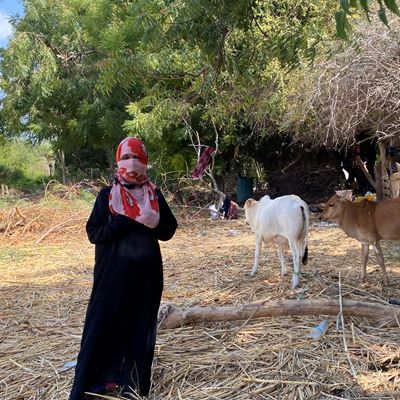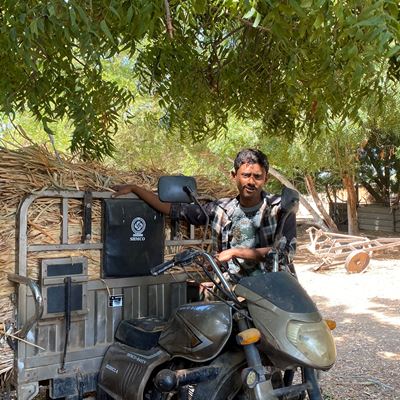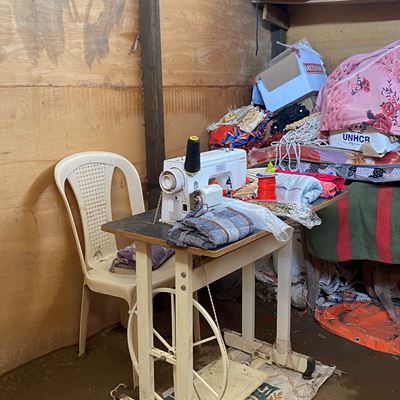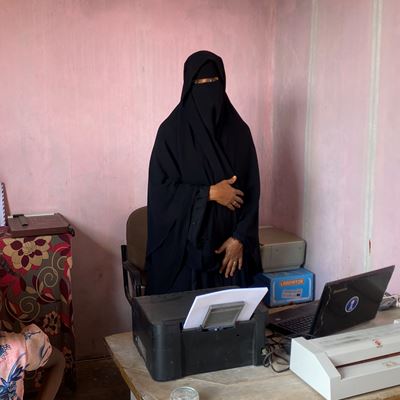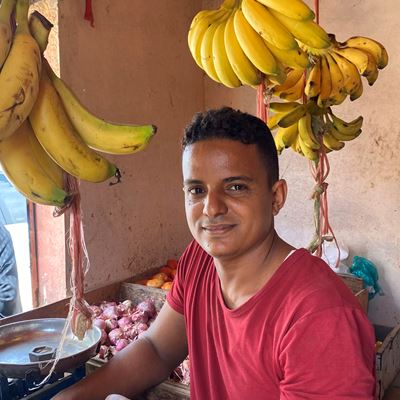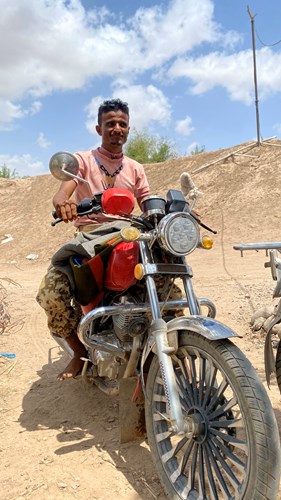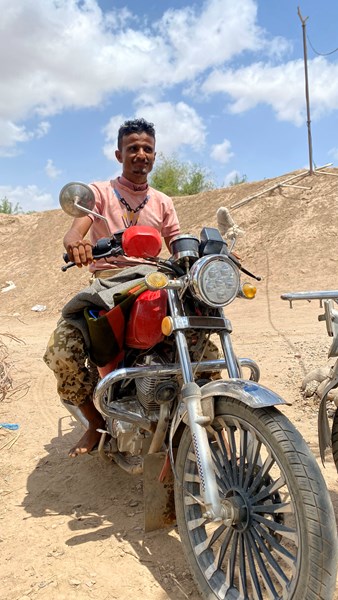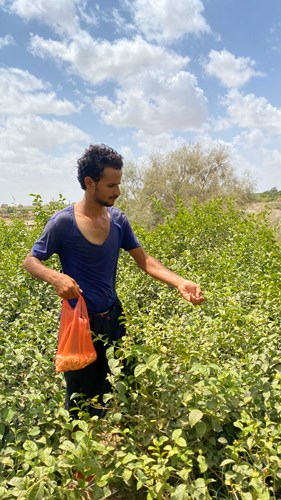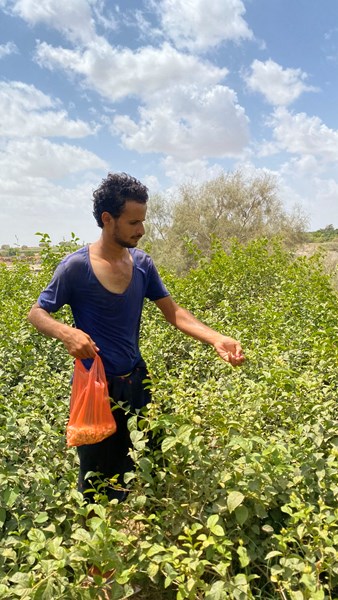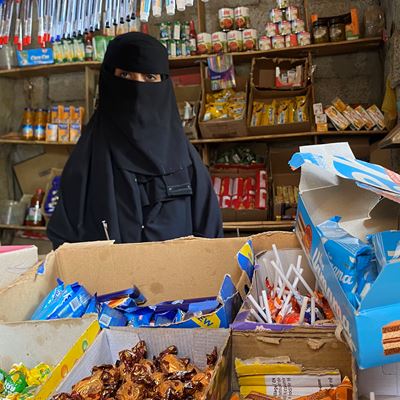Jumaa
Let's begin with Jumaa, a 45 years old, displaced mother of five. Jumaa is a widow and has a background in farming. Faced with the responsibility of caring for her children alone, through small Danida grant she decided to invest in farm animals. She began with a few goats and has now expanded to include few cows. Jumaa is happy with the progress she managed to achieve with her small project.
Originally from the western side of Yemen, specifically Mokha, Jumaa cannot return to her home due to the continued presence of landmines in her village. Also, in her current displacement location, she found a school for her oldest daughter. Jumaa doesn't want to take her daughter out school by returning to their village in Mokha due to the lack of schools in there.
In Yemen, widows like Jumaa are usually entitled to social support income. However, she no longer qualifies for this benefit as she is now a displaced person. However, this social support income doesn't interest Jumaa that much as it would not have been sufficient, providing only around 15-20 USD per month.
Jumaa is a contented woman, despite living in a camp and being solely responsible for her children. She also has to make more to be able to take care of her cows, covering their food and necessary veterinary services, which can sometimes strain her budget. Nevertheless, she's grateful that she and her children are safe and that she's received assistance in managing her livelihood.
Jumaa is currently residing in a transitional shelter provided by DRC Yemen operations.
